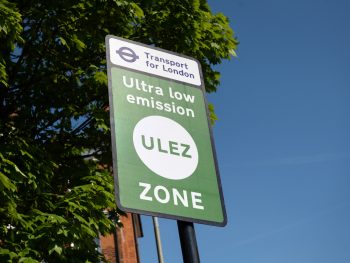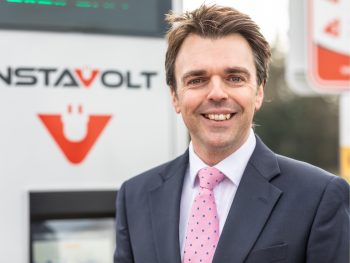New data shows a quarter (27%) of fleet businesses in the UK are concerned about the expansion of Clean Air Zones and Low Emission Zones as London goes live with its expanded ULEZ.

The survey of 100 UK fleet managers, carried out by connected operations company Samsara, shows the ULEZ expansion will create a headache for the day-to-day operation of fleets, such as route planning and managing delivery timescales.
Effective from today (29 August 2023), the expanded ULEZ now operates across all London boroughs up to the existing Low Emission Zone boundary. The rollout takes effect after Mayor of London Sadiq Khan won a High Court battle, despite an attempt by five London councils to stop the expansion.
The expansion reportedly makes the London ULEZ the world’s largest pollution charging area.
Khan said the move would tackle the triple threats of air pollution, the climate emergency and congestion, ensuring five million more Londoners can breathe cleaner air.
In a comment to the London Standard, Khan said it was a “landmark moment” for the capital.
“It is no secret that ULEZ has been a contentious issue, but the poison inhaled by Londoners is inflicting untold misery.”
Under the ULEZ, owners of older, more polluting vehicles are charged £12.50 a day to drive them within the zone. Currently nine out of 10 cars seen driving in outer London are already compliant, according to TfL, which opened up its scrappage scheme earlier this month to all Londoners with a non-compliant car.
According to Samsara’s research, the ULEZ rollout could be the catalyst for the transition to electric vehicles and more sustainable operations that fleet managers are keen to pursue.
Its analysis found three out of four fleets (76%) say reducing carbon emissions/improving sustainability is a priority in 2023 and 69% of UK fleet managers say moving to electric vehicles will have a positive impact on their business.
Meanwhile, nearly half (45%) of fleet managers say the future of their fleet is electric, while 36% say it’s hydrogen – no fleet managers say the future lies in petrol or diesel.
Philip van der Wilt, SVP and GM EMEA of Samsara, commented: “While there are environmental benefits in creating low-emission zones, it comes at a cost to fleet operators looking to carry out their everyday operations, particularly in terms of route planning and guaranteeing delivery times. The adoption of cleaner, more efficient vehicles will go some way to address this issue. For some, ULEZ will serve as a catalyst for transitioning their fleets to EVs and becoming a more sustainable business.
“EV charging and mileage range are issues for fleet operators. To manage a smooth transition to EVs, fleet operators can use connected operations technology to plan routes around charging stations, predict route times, and monitor emission reductions. This will go a long way in combating issues such as charging schedules and range anxiety.”
ULEZ expansion vital to UK’s successful EV transition

Adrian Keen, CEO of public charging network InstaVolt, concurred with Samsara’s views.
Keen has said it’s clear that the ULEZ expansion is critical to protecting the health and welfare of our country, following data showing that the initial implementation of ULEZ has benefited the environment.
“The ULEZ expansion is critical to protecting the UK’s transition to EVs by 2030,” commented Keen. “The number of mixed messages from the Government recently has been astonishing, with proposals made to extend the 2030 deadline and row back support of ULEZ. This was the vote of approval needed to keep the country on track and is an opportunity that will create a seismic shift in our country’s emissions – and it’s not to be taken lightly.
“We’re investing heavily in our charging network across the country and specifically within ULEZ expansion zones, forming infrastructure to meet the needs of EV users, with plans in progress for a charging super hub at Syon Park in Brentford, among multiple other developments. Recent statistics show that air pollution is the country’s biggest environmental health threat, with outdoor pollutants estimated to contribute towards 40,000 excess premature deaths per year, costing the economy upwards of £20bn a year. ULEZ directly helps to mitigate this. We need to push aside our prejudices and understand that this is not just a political scheme, but one that directly impacts our country’s health and environment.”

Fleetcor, including Allstar, also commented on the ULEZ expansion, noting that it brings the UK closer to net zero ambitions, but stating that political leadership focused on climate progress is now more important than ever.
Tom Rowlands, MD global EV solutions, said: “We’re another step closer to achieving our net zero ambitions – from today, hundreds of streets across Greater London will become cleaner and safer for the general public.
“Air pollution has a devastating impact on the health and wellbeing of communities, and it is vital that we take steps towards further reducing our environmental impact. The 2030 deadline is fast approaching, and while policies like ULEZ aren’t always popular with people, they help keep us on track and incentivise the transition to electric.
“Political leadership focused on climate progress has never been more important. Policies like the ULEZ scrappage scheme, which enable all Londoners replacing non-compliant cars to claim up to £2,000, further encourage sustainable choices, and we hope to see more towns and cities in the UK following suit in the coming months.”
National shared transport charity Collaborative Mobility UK (CoMoUK) said the expansion is an opportunity for a further shift to shared transport options such as car clubs, bike and e-scooter share schemes.
More than 600,000 people in London have used shared e-scooters as part of successful trials, while there are 667,000 car club members in the city.
But London is also home to around 2.7 million private cars, which are the single most dominant transport mode.
Richard Dilks, chief executive of CoMoUK, said: “Shared transport is a way to avoid a daily charge, and is part of TfL’s official support package for residents and for those scrapping a qualifying vehicle. This all helps to clean up London’s air and deliver more liveable neighbourhoods.
“London has a wealth of shared transport options that offer alternative ways of travelling around the city which are kinder to both the environment and people’s bank accounts.
“If we are serious about cutting the level of transport emissions, reducing private vehicle use is a crucial part of how we get there.”

